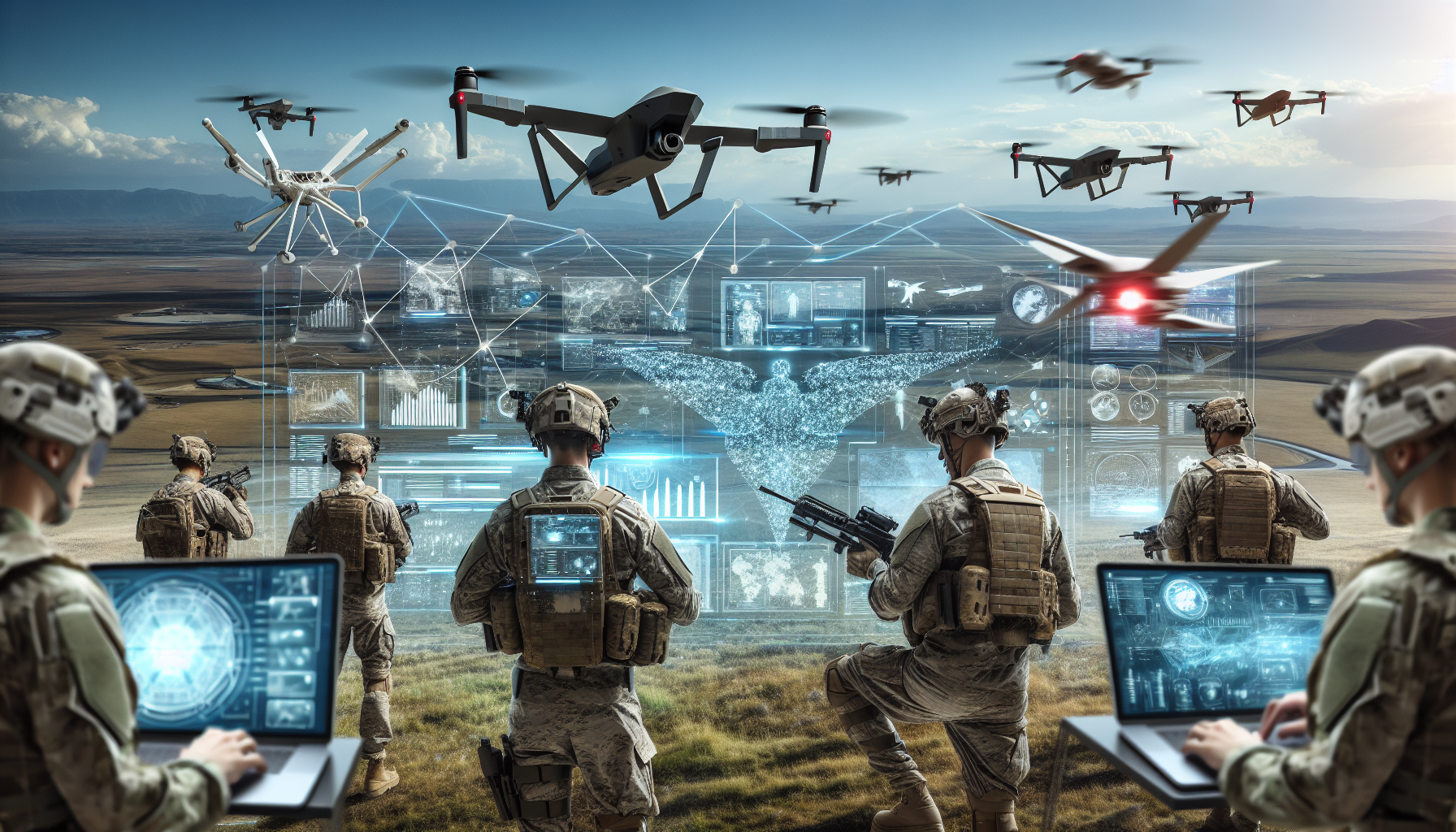AI and Machine Learning Accelerate Military Operations

Revolutionizing Military Operations with AI and Machine Learning
The U.S. Department of Defense (DoD) has identified the development of artificial intelligence (AI) and machine learning technologies as a paramount research and development priority. These technologies are set to revolutionize the landscape of military operations, enhancing efficiency, decision-making, and strategic advantages on and off the battlefield.
Enhancing Decision-Making Processes
AI and machine learning are at the frontier of transforming how decisions are made in military settings. Traditionally, decision-making in military operations relied heavily on human intelligence and delayed responses due to the time-consuming analysis of vast amounts of data. Now, AI algorithms can process data at unprecedented speeds, sifting through information to extract actionable insights.
Machine learning models can analyze patterns from historical data, predict potential threats, and assist in making real-time tactical decisions. These models can consider numerous variables simultaneously, far beyond the capacity of human analysis, thus providing more accurate and timely decisions. This capability is crucial during combat situations, where every second counts, and precision is paramount.
Operational Efficiency and Resource Management
One of the major advantages of integrating AI into military operations is improved efficiency and resource management. AI-driven logistics systems can optimize supply chains, ensuring that resources are delivered promptly and efficiently. Predictive algorithms can forecast resource needs based on mission parameters, historical data, and environmental conditions, minimizing waste and ensuring the right materials reach the right place at the right time.
Moreover, AI can enhance the maintenance of military equipment. Predictive maintenance systems use machine learning to identify potential failures before they occur, allowing for proactive repairs. This not only extends the lifespan of expensive military hardware but also ensures that equipment is always operational when needed.
Autonomous Systems and Drones
AI and machine learning are integral to the development of autonomous systems and unmanned vehicles. Modern military operations increasingly deploy drones and other autonomous systems for tasks that would be too dangerous or impractical for human soldiers. These systems can conduct surveillance, deliver supplies, and even engage in combat with minimal human intervention.
Machine learning algorithms enable these autonomous systems to navigate complex environments, identify targets, and make decisions independently. For instance, drones equipped with computer vision technology can distinguish between civilian and military targets, reducing the risk of collateral damage. Autonomous vehicles can also coordinate with each other in swarm formations, enhancing their effectiveness in a variety of missions.
Cybersecurity and Information Warfare
The digital age has brought new dimensions to warfare, with cybersecurity and information warfare becoming critical areas of focus. AI and machine learning are key to defending against cyber threats. These technologies can detect and respond to cyber-attacks in real time, analyzing patterns of network traffic to identify malicious activities and mitigate them before they cause significant damage.
In the realm of information warfare, AI can be used to counter disinformation campaigns and safeguard the integrity of military communications. Machine learning algorithms can identify fake news and misinformation, helping to maintain accurate and reliable information channels.
Training and Simulation
AI is also transforming military training and simulation exercises. AI-powered simulation platforms can create realistic, immersive training environments that adapt to the needs of individual soldiers. These platforms use machine learning to assess performance and provide personalized feedback, enhancing the effectiveness of training programs.
Additionally, virtual reality (VR) and augmented reality (AR) technologies, powered by AI, create interactive scenarios that prepare soldiers for real-world situations. These technologies can replicate various combat scenarios, allowing soldiers to practice and improve their skills in a safe and controlled environment.
Ethical and Strategic Considerations
While the integration of AI into military operations offers numerous benefits, it also raises important ethical and strategic questions. The development and deployment of autonomous weapons systems, in particular, have sparked debates about accountability and the potential for unintended consequences.
The DoD is keenly aware of these concerns and is working to establish guidelines and protocols to ensure that AI technologies are used responsibly. This includes developing frameworks for human oversight and control over autonomous systems, ensuring that ethical considerations are embedded in the design and deployment of AI technologies.
Future Prospects
Looking ahead, the potential applications of AI and machine learning in military operations are vast and continually evolving. Continued investment in these technologies promises to enhance not only traditional military operations but also non-combat roles such as disaster response and humanitarian aid.
The future of military AI will likely involve greater integration with other emerging technologies such as quantum computing and biotechnology, further expanding its capabilities. As these technologies mature, they will play an increasingly critical role in shaping the strategic landscape and maintaining national security.
For a deeper understanding of how AI and machine learning can enhance your operations, contact us to learn more about IntelliAgente, our AI-driven tool designed to support sales and customer assistance.
Fonte: Military Aerospace
